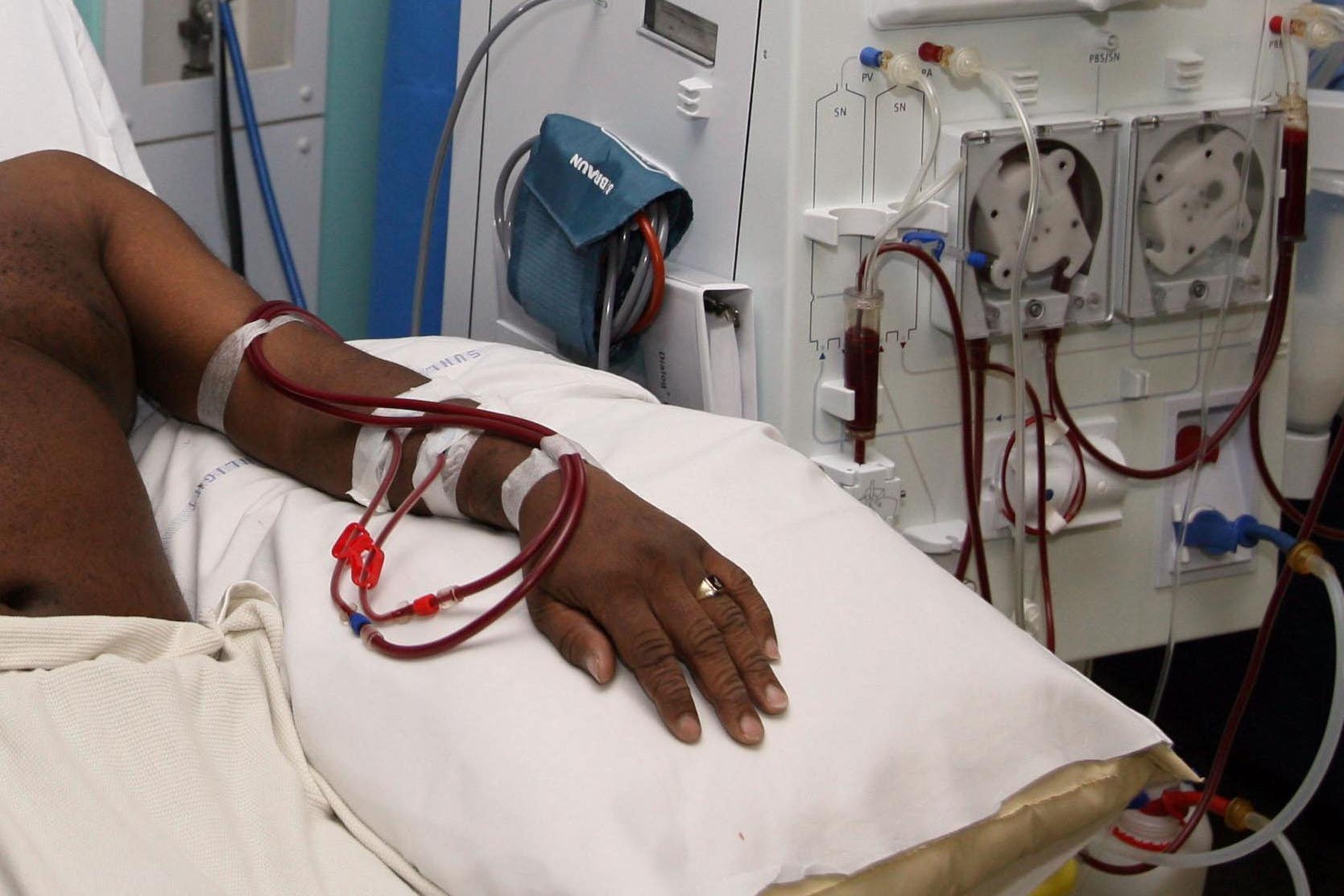Calls for adoption of action plan on disease affecting one in 10 Scots
A working group led by charity Kidney Research UK will unveil an action plan on Wednesday evening.

A group of clinicians and patients has called on the Government at Holyrood to adopt a “Scotland-wide focus” on chronic kidney disease (CKD), saying as many as 600,000 Scots are now thought to be living with the condition.
The working group, led by charity Kidney Research UK (KRUK), will unveil an action plan on Wednesday with 19 recommendations for improving the diagnosis and treatment of CKD.
These include measures for monitoring people who are most at risk of the condition, support for GPs and other primary care staff in leading on diagnosis and management, and ensuring patients can access specialist emotional, practical and digital support.
The announcement comes 20 years after calls for a national plan for the condition were “ignored” by the then health secretary – a decision one clinician said had affected “tens of thousands of people.”
This investment is vital to avoid the looming nightmare of thousands more people requiring exhausting, expensive dialysis
Professor Jeremy Hughes, chairman of the working group, said: “It is possible to build a better future for people with CKD and this action plan shows the government how this can be achieved.
“This investment is vital to avoid the looming nightmare of thousands more people requiring exhausting, expensive dialysis, as predictions based on existing data show.
“Embedding and prioritising CKD in government and public health policy is the only way forward.
“In the early years of the new Scottish Parliament, patients and eminent colleagues asked for CKD to be made a priority by the then-government.
“Tens of thousands of people have been affected by the decision to ignore that advice. Now is the time for a new Scotland-wide focus on CKD.”
CKD refers to any form of long-lasting kidney disease that impairs the kidneys’ ability to remove waste products and toxins from the blood.
Its effects range from mild loss of kidney function to kidney failure, at which point patients require ongoing dialysis treatment or a kidney transplant to stay alive.
It also significantly increases the risk of developing cardiovascular disease and high blood pressure.
KRUK said the early diagnosis and effective treatment were key to managing and slowing the progression to kidney failure.
The charity said the number of people whose kidney failure is treated with transplants or dialysis had risen by 60% since 2004, and that treating all stages of CKD now costs NHS Scotland almost £0.3 billion each year.
It added that an estimated 240,000 people with CKD in Scotland are currently undiagnosed.
Stephanie Nicoll, 41, from Livingston – who was diagnosed with kidney disease when she was 14, said receiving an early diagnosis had drastically reduced the impact of the condition on her life.
“I was lucky that medication and monitoring slowed the decline of my kidneys, and they lasted until I needed a transplant, nearly 20 years later,” she said.
“While not everyone has visible symptoms like I did, some people have obvious risk factors like diabetes and heart disease.
“With better pathways, such as those outlined in this plan, more people could be helped to stave off kidney failure – it shouldn’t just be potluck.”
Professor Andy Rees, former president of the Renal Association of Great Britain and Ireland, and vice-convener of the former Cross-Party Group on Kidney Disease that ran from 2002 to 2004, reflected on the decision not to pursue a national plan in 2004.
“We believed back in 2004 that the only way to ensure people with chronic kidney disease had quick and equitable access to the right treatment was through a national plan,” he said.
“The health secretary at that time told us that a national plan was not the best way forward and that the Scottish Government would instead seek alternative ways to drive improvements for people with CKD. Twenty years later and that positive change is yet to happen.
“This action plan from a new group of clinicians and patients asks for many of the same things: for earlier detection of people with CKD, improved management of people with CKD and joined-up data and IT to improve services.
“Scotland simply cannot wait another 20 years for change.”
The action plan, Chronic Kidney Disease: An Action Plan for Scotland, will be launched on Wednesday evening at an event hosted by KRUK and attended by public health minister Jenni Minto, MSPs, patients, clinicians, and representatives from the health and care sector.
Ms Minto said: “The Scottish Government welcomes the new action plan and will consider its recommendations carefully.
“Everyone living with chronic kidney disease should have access to safe, effective and person-centred care and we have recently worked with AstraZeneca and the Universities of Dundee and Glasgow to support clinical trials to slow the progression of chronic kidney disease, aiming to reduce dialysis and transplant needs.
“We have also implemented a Scotland-wide policy to reimburse home dialysis patients for the extra electricity costs incurred in their treatment.”
Kidney Research UK is a leading UK charity focused on funding research into the prevention, treatment and management of kidney disease.
Bookmark popover
Removed from bookmarks